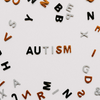The Many Ways Quarantine Can Impact Your Child with Autism

Electronic communication
Not all students with autism have access to technology at home. As a parent, you should contact your child’s school principal or the Director of Special Education to discuss if this is an issue for your family. Some schools have taken the extra step of ensuring that iPads have been distributed to these students. However, even with iPads, some of these same families still don’t have access to internet services. Some school districts have established “hot spots” throughout their communities as a means for students to obtain internet service.
These unique situations have created many challenges for students with autism as they struggle to access their education daily. Some homes have only one form of electronic communication available, and several individuals in the household may need to access it at the same time. Maintaining communication with your child’s teacher and explaining the situation will allow everyone to be aware of your struggle. Parents could consider the use of social stories for their children with autism, such as the one included below.
New routines
Students with autism may currently be struggling with developing a sense of their new routines. Your child may have become used to daily routines that occur at school and at home. However, because the routines were in different environments, your child may have become accustomed to viewing them as entirely “separate.” Now, due to the lockdown status, the routines have become “combined” for the child within his/her own homes. The change of these routines may cause stress for children with autism or heighten their behaviors as they struggle to adapt to their new sense of normalcy.
New rules
New rules have emerged as to what is considered appropriate and inappropriate in terms of interacting with teachers. While in school, these students would never consider eating during a lesson, wearing a hat, or leaving the room without permission to go to the bathroom. Your child with autism may struggle with an instructor who attempts to enforce school rules in his/her home. Reviewing these rules with your child for teacher online interaction may assist with avoiding unnecessary situations during this time of quarantine.
Loss of social interaction
Your child with autism might be struggling daily with the isolation that may be occurring within his/her own home. Children miss their interaction with their friends, as well as their involvement with after-school sports and music programs.
Older students with autism expecting to graduate this current school year may be grieving the loss or delay of senior proms and graduation ceremonies. Assisting your child with autism with Zoom meetings with his/her classmates or hosting a graduation party for the immediate family within the home may help to deal with some social isolation.
New symptoms
Children with autism may also be coping with new situations in their lives. Some are dealing with overeating due to either boredom or easy-access to food in their homes. Some children with autism have reported a lack of energy and sleeping more than usual. Like adults, children with autism may be stating that it has become easy for them to lose track of what day of the week it is. Keeping your children with autism at home on a regular schedule may assist with alleviating some of these issues.
Monitoring the safety of children
Not all homes are safe for children. An extra pair of eyes accessing the situation of children with autism, in the form of a classroom teacher, has assisted many children with staying “safe.” Some of these children with autism are now in vulnerable situations and may become nervous without the extra support they were receiving in school. Such children with autism may be friends or classmates with your child. As your child interacts with them online, you may notice concerns that you did not see in the past.
Some students may not be receiving the same nutrition or meals they have been enjoying while attending school. Sharing any local resources with the parents of these children could assist these families. If you do notice a serious concern with another child with autism through your child virtually interacting with them, you must remember you are a mandated reporter. If you believe that a family needs extra support during quarantine or the safety of the child is at risk, then you must make a report to the necessary Child Protective Agencies.
Eyestrain
Many children with autism are now stating that they are experiencing eyestrain. This may be new to them as they may not have been staring at a computer screen for hours each day while at school. Frequent headaches and eye strain will need to be dealt with. Frequent breaks from electronic communication may need to be incorporated into the day.
Related services
Some children with autism may require the direct services of speech, physical, or occupational therapy. While these services can still be accessed through electronic means, children may be missing the direct interaction they have had with their therapists and the motivation they provide. As parents, it will be important that you maintain contact with these professionals to learn how to assist your own child with autism with his/her speech needs as well as physical or occupational therapy needs.
A quiet place to work
Some children with autism have stressed that they can’t access a quiet place in their home in which to do school-related work. They worry about being able to focus while online with their teacher due to this lack of a quiet place. Try establishing a “quiet” area within your home during this time of quarantine for your child with autism to interact with his/her teacher and therapists.
Medical appointments
Children with autism who require medicine may not be able to go to see their doctors during the shutdown. Some children who have been receiving out of school counseling from local agencies or Applied Behavior Analysis (ABA) therapy have been greeted with “closed doors.” Knowing that these resources may not be available for a lengthy period is causing stress and depression amongst some children.
As a parent, it will be critical that you listen carefully to the concerns of your child with autism. Reassure him/her that once quarantine is lifted, he/she will be able to see his/her counselors and doctors again.
Stress in the home
Many children with autism are experiencing a new level of “stress” within their own homes. A parent may be currently experiencing a loss of employment, bills are piling up, and stress amongst family members is becoming more apparent to them. Even the extra costs associated with the paper for printers and ink cartridges have caused stress for some families. Parents may also be experiencing the anxiety of dealing with their regular daily routines while also assisting their children with their education during the day.
Children with autism witnessing such stress in their homes may become worried or stressed and begin acting out in inappropriate ways. Parents should attempt to keep “adult conversations” separate from the conversations they are having with their children. While this is a challenging time for everyone, and parents are juggling a lot of new responsibilities, keep in mind that your house is still a “home” and not a “school.” You are still “parents” and not full-time teachers, counselors, or therapists. Congratulate yourself for being a great “parent” and loving your child.
Lockdown Social Story











If you found this article helpful, please consider sharing it on social media or linking to it from your website to help other parents. You may also want to check out our other resources on coping strategies for autism and COVID-19.
*This blog post was written by Ron Malcolm with Autism Parenting Magazine.




